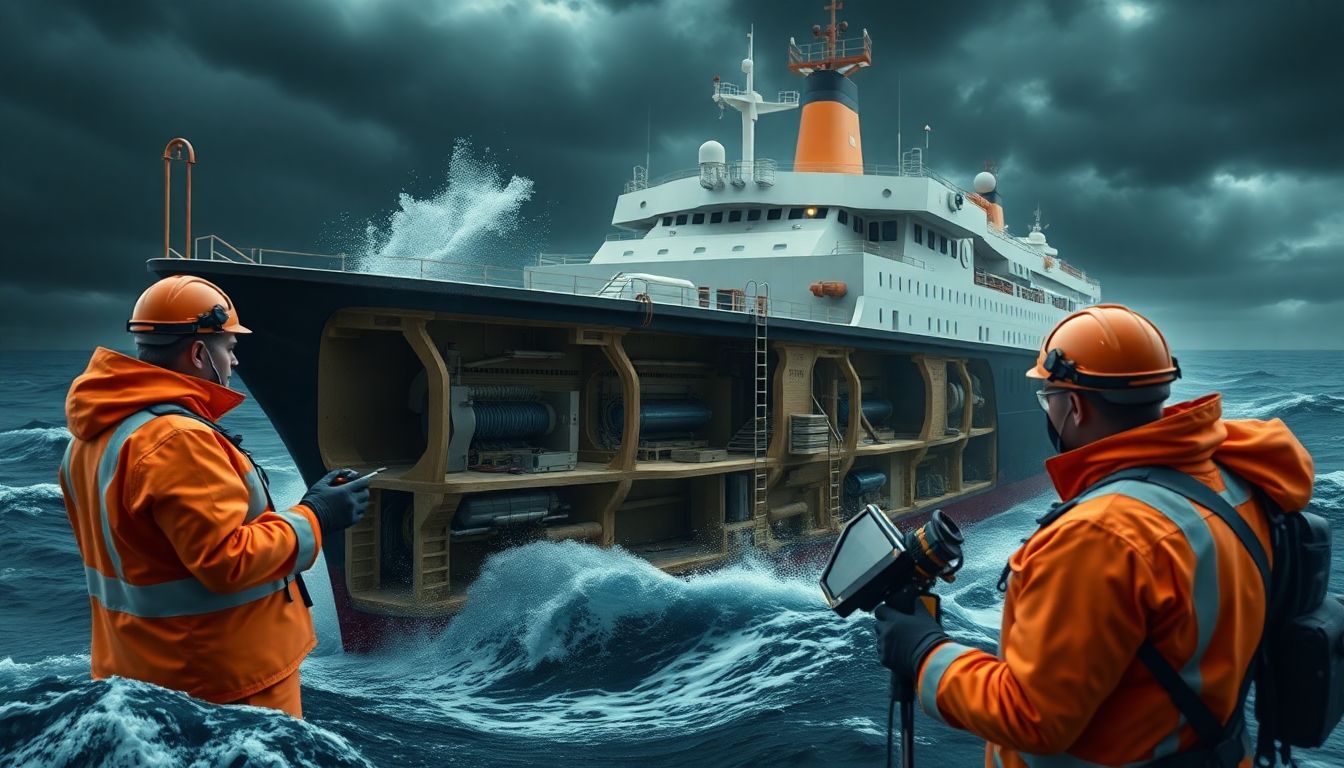
Offshore accidents can be devastating, resulting in injuries, fatalities, and significant financial losses. According to the U.S. Bureau of Labor Statistics, commercial fishing, offshore drilling, and shipping industries consistently report some of the highest fatality rates in the workforce. The complexities of offshore accident litigation make it essential to gather solid evidence to support claims. Effective evidence gathering is crucial for ensuring that victims receive the compensation they deserve.
Securing the Accident Scene
Immediate Actions After the Accident:
Preserving the accident scene is vital. Immediately after an incident, take the following actions:
- Ensure the safety of all personnel.
- Document the scene with notes or sketches.
- Avoid moving any equipment or personal belongings; this preserves evidence.
- Understand the legal risks: Tampering with evidence can harm claims.
Photographing and Videographing the Scene:
High-quality visual evidence is key. Best practices for capturing images include:
- Use a good camera or smartphone with a high-resolution setting.
- Capture wide shots of the entire scene, along with close-ups of specific details.
- Document from multiple angles to provide context.
- Lighting matters; shoot in proper light to avoid shadows.
Witness Accounts:
Witness statements can be crucial. Obtain these promptly by:
- Asking witnesses for their contact information.
- Conducting brief interviews on-site while details are fresh.
- Taking notes or recording statements with consent.
- Be mindful of conflicting accounts; document inconsistencies carefully.
Documenting Injuries and Medical Treatment
Detailed Medical Records:
Collecting complete medical documentation is essential for any case. Necessary records include:
- Initial evaluations from emergency departments.
- Ongoing treatment records from specialists.
- Evidence of rehabilitation, if applicable.
Getting records from multiple healthcare providers strengthens the case.
Expert Medical Opinions:
Expert testimony can clarify injuries. When selecting medical experts:
- Look for professionals with experience in offshore injuries.
- Ensure they can convincingly establish causation between the accident and injuries.
Lost Wages and Future Earning Capacity:
Calculating lost wages plays a significant role. Steps include:
- Document income sources and employment history.
- Compile evidence like tax returns, pay stubs, and employment contracts.
- Estimate future earning potential, considering career impacts due to injuries.
Investigating Vessel and Equipment Malfunction
Gathering Data from Vessel's Data Recorder:
Voyage Data Recorders (VDRs) provide critical information. To utilize:
- Access recorded data promptly before it gets erased.
- Focus on speed, course, and communication logs relevant to the accident.
- Address potential legal hurdles in obtaining VDR data.
Examining Equipment and Machinery:
Inspecting equipment is crucial. Remember to:
- Preserve any faulty equipment as evidence.
- Work with engineering experts to establish failure causes.
Reviewing Maintenance and Safety Records:
Maintenance logs can reveal negligence. Secure:
- Regular inspection reports and maintenance history.
- Examination of compliance with safety regulations.
Identifying Responsible Parties and Negligence
Determining Liability:
Establishing who’s at fault is critical. Identify:
- All responsible parties, including employers and contractors.
- The chain of responsibility to clarify potential negligence.
Regulatory Compliance:
Look into maritime regulations to ascertain adherence:
- Identify violations that contributed to the incident.
- Consult relevant statutes and codes to bolster the claim.
Corporate Records and Internal Documents:
Accessing internal documents can unveil crucial information. Sources include:
- Company handbooks and safety policies.
- Internal emails and reports related to the accident.
Utilizing Expert Witnesses
Maritime Law Experts:
Maritime law experts can provide valuable insights. Seek experts who:
- Have years of experience in offshore accident cases.
- Can clarify intricate legal concepts and support your arguments.
Safety and Engineering Experts:
Consulting with safety and engineering experts can pinpoint failures. Essential steps include:
- Vetting their credentials and experience.
- Using expert reports to substantiate claims and demonstrate negligence.
Preserving and Protecting Evidence
Maintaining Chain of Custody:
Proper evidence handling is vital. Ensure:
- Each piece of evidence is documented and stored securely.
- Procedures are in place to prevent contamination or loss.
Digital Evidence Preservation:
With digital evidence often critical, follow best practices:
- Use digital forensic techniques for data recovery.
- Securely store all digital evidence to prevent alteration.
Conclusion:
Gathering evidence for offshore accident cases is a complex process that requires diligence. Documenting details thoroughly and investigating all aspects can significantly impact the outcome of a claim. A well-documented case increases the likelihood of success and fair compensation for victims facing the aftermath of these tragic incidents. To ensure your rights are protected, consider consulting with legal experts experienced in offshore accidents.
